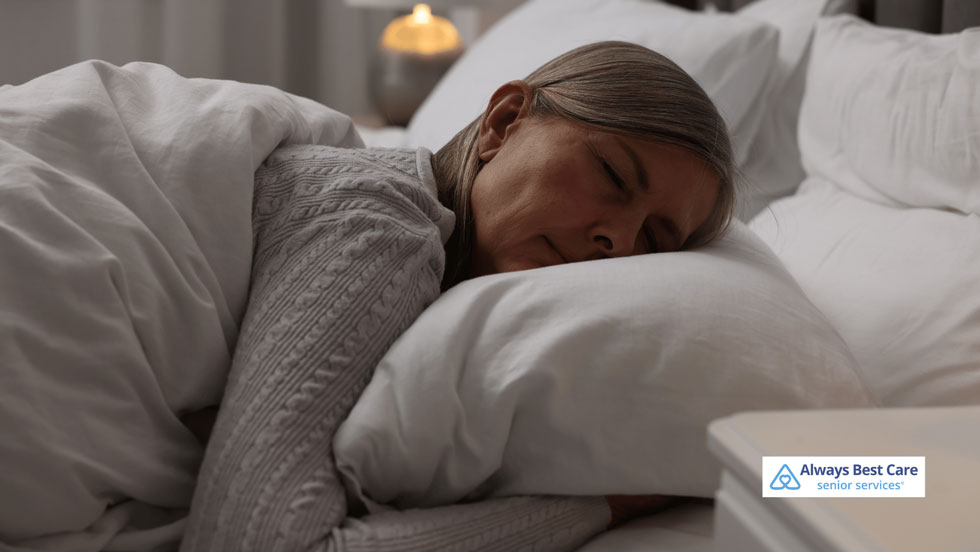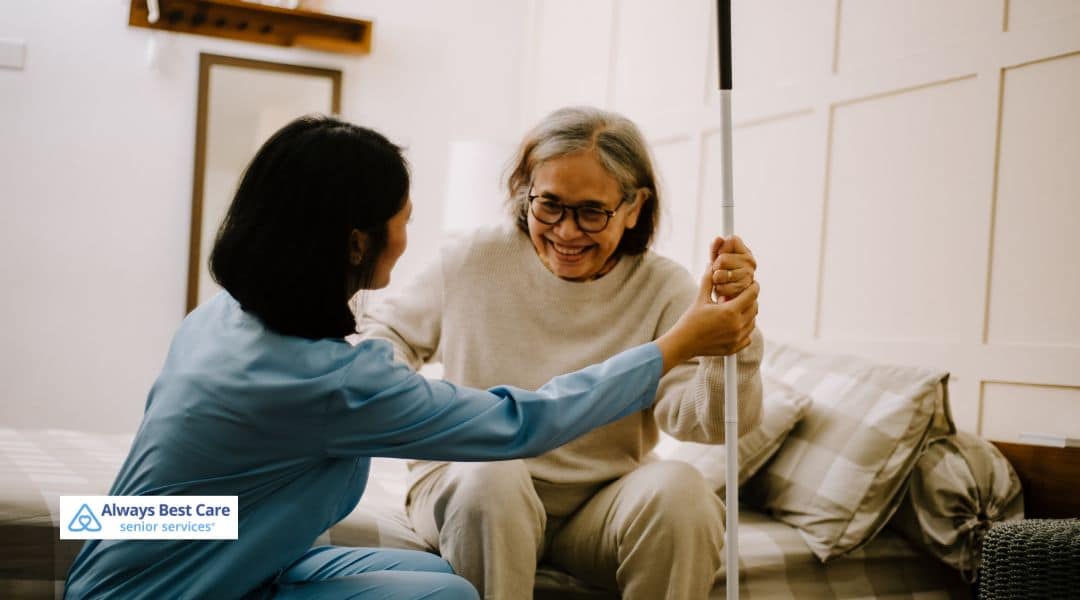Sleep Well: Top Tips for Seniors Seeking Better Rest

A good night’s sleep is essential for maintaining energy, mood, and overall health. Yet, getting that restful slumber can become a challenge as we age.
Factors like changing sleep patterns, health conditions, and even stress can make it harder for seniors to achieve quality sleep.
The good news is that small adjustments can lead to big improvements! Here are top tips to help seniors sleep better and wake up feeling refreshed.
Table of Contents
Understanding Common Sleep Challenges in Seniors
As we age, it’s common to experience changes in sleep patterns. Many seniors find that their sleep becomes lighter and shorter, making it more difficult to stay asleep through the night.
Below are some of the common challenges seniors face when it comes to sleep:
Lighter Sleep
As we age, our sleep cycles shift, leading to more time spent in lighter stages of sleep rather than deep, restorative sleep. This can make seniors more prone to waking up during the night due to noise, discomfort, or other interruptions.
Frequent Bathroom Trips (Nocturia)
Many seniors experience nocturia, which is the need to wake up multiple times during the night to use the restroom. This is often due to changes in bladder control or increased fluid intake before bedtime, making it challenging to get a full night’s rest.
Arthritis and Chronic Pain
Joint pain and stiffness caused by arthritis or other chronic conditions can make finding a comfortable sleeping position difficult.
Insomnia
Insomnia, characterized by difficulty falling or staying asleep, is more common among older adults. It can be triggered by factors such as anxiety, stress, or other underlying health conditions. Insomnia can significantly impact overall quality of life by causing fatigue and irritability during the day.
Sleep Apnea
Sleep apnea, a condition in which breathing temporarily stops during sleep, is more prevalent in seniors. It often leads to poor sleep quality, frequent awakenings, and daytime drowsiness. This condition can also be associated with other health risks, such as high blood pressure and heart disease.
Restless Leg Syndrome (RLS)
Many seniors experience restless leg syndrome, a neurological disorder that causes an irresistible urge to move the legs, particularly at night. This discomfort can make it hard to fall asleep or stay asleep throughout the night.
Medication Side Effects
Seniors often take multiple medications, some of which may have side effects that interfere with sleep. Certain medications can cause drowsiness during the day or lead to frequent waking at night.
Maintain a Consistent Sleep Schedule
Establishing a routine is one of the best ways to promote better sleep.
Going to bed and waking up simultaneously daily helps regulate your body’s internal clock. This consistency can make falling asleep easier and improve sleep quality over time. Sticking to your schedule can make a significant difference, even if you feel like sleeping on weekends.
Create a Relaxing Sleep Environment
Your sleep environment plays a big role in how well you rest.
Start optimizing your bedroom: make it cool, quiet, and dark. Comfortable bedding, blackout curtains, and calming colors can help create a soothing atmosphere. If outside noise is a problem, consider earplugs or a white noise machine.
Adjust Your Diet for Better Sleep
What you eat can directly impact your sleep.
A balanced diet rich in fruits, vegetables, whole grains, and lean proteins supports overall health, but specific foods may help promote sleep. For instance, foods rich in tryptophan, magnesium, and melatonin, such as nuts, seeds, and cherries, are great options for an evening snack.
Avoid caffeine and large meals close to bedtime, as these can interfere with falling asleep.
Manage Bathroom Visits and Ensure Bathroom Safety
Frequent nighttime trips to the restroom are common among seniors, but managing your hydration can help minimize disruptions.
Avoid fluid intake in the evening, especially a few hours before bed, while staying hydrated throughout the day.
Ensuring bathroom safety is also crucial. Install nightlights along the path to the bathroom, and consider using non-slip mats and grab bars to prevent falls during those late-night trips.
Lower Stress and Keep Anxiety under Control
Stress and anxiety can significantly disrupt sleep, making falling or staying asleep difficult.
To lower stress levels, engage in relaxing activities before bed. Deep breathing exercises, light stretching, or reading can help calm your mind. Practicing mindfulness and meditation can also help manage long-term stress and anxiety, creating a more peaceful mindset as you prepare for bed.
Exercise Regularly, but Avoid Late Workouts
Staying active during the day is one of the best ways to improve sleep.
Gentle exercises like walking, swimming, or yoga can help tire your body out and promote deeper sleep. However, avoid exercising too close to bedtime, as this can leave you feeling energized instead of ready to rest.
Limit Screen Time before Bed
In today’s digital age, getting caught up watching TV or scrolling through a phone before bed is easy. Unfortunately, screens emit blue light, interfering with melatonin production, the hormone regulating sleep.
Limit screen time at least an hour before bed and opt for more calming activities, such as listening to soft music or reading a book, to help signal to your body that it’s time to wind down.
Address Health Conditions That Impact Sleep
If chronic conditions like arthritis or sleep apnea disrupt your sleep, managing them effectively is important.
Speak with your healthcare provider about treatment options or adjustments to your care plan that can help improve sleep. Sometimes, small changes like a new pillow or mattress that supports joint pain can make a big difference.
How Always Best Care of Shreveport Can Help
At Always Best Care of Shreveport, we understand seniors’ unique challenges when getting a good night’s rest. Our in-home care services are designed to provide the support needed to overcome many sleep issues commonly experienced in later life:
- Assistance with Bathroom Visits: Our caregivers can assist with safe and efficient bathroom trips at night, reducing the risk of falls or accidents. By providing physical support and ensuring proper lighting and safety measures, we confidently help seniors navigate nighttime bathroom needs.
- Chronic Pain Management: For seniors experiencing discomfort from arthritis or other chronic conditions, our team can help manage pain through personalized care plans. This may include assisting with positioning in bed, providing comfort measures, and ensuring that any prescribed therapies or medications are administered appropriately to support better sleep.
- Establishing Calming Bedtime Routines: We work with seniors to create soothing bedtime routines, encourage relaxation, and reduce stress. This might involve helping with light stretching or relaxation techniques or creating a peaceful bedroom environment free from distractions and conducive to restful sleep.
- Alleviating Anxiety and Stress: Our compassionate caregivers can provide companionship and emotional support, helping ease feelings of anxiety or loneliness that may affect sleep. We focus on creating a calm and reassuring presence that helps seniors feel more at ease, leading to better rest.
- Creating a Safe Sleep Environment: Safety is a priority at Always Best Care of Shreveport. We can assess the home for potential hazards and help implement safety measures like installing grab bars, non-slip rugs, and nightlights. These small changes ensure seniors feel secure and comfortable in their sleep environment.
- Monitoring Health Conditions that Impact Sleep: Our caregivers are trained to monitor health conditions that may interfere with sleep, such as sleep apnea, restless leg syndrome, or respiratory issues. We provide ongoing support by helping manage these conditions and communicating concerns to family members or healthcare providers to ensure proper treatment.
Get the Rest You Deserve with Always Best Care of Shreveport!
If you or a loved one are struggling to get quality sleep, Always Best Care of Shreveport is here to help.
Our compassionate caregivers provide personalized in-home support to address common sleep challenges, from managing nighttime mobility to creating stress-free bedtime routines. Reach out to us today to learn more about how we can assist you in achieving restful nights and healthier days.
Contact Always Best Care of Shreveport at (318) 424-5300 to learn more and schedule your free consultation.





